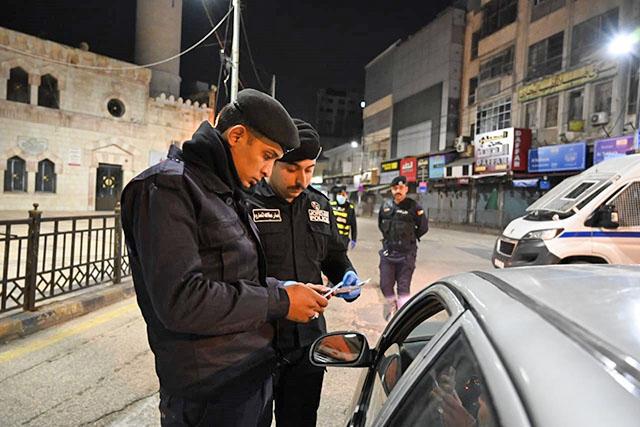You are here
Survey finds Jordanians ‘pessimistic’ about Kingdom’s economic outlook
By Rayya Al Muheisen - Feb 13,2023 - Last updated at Feb 13,2023

Jordanians remain pessimistic about economic conditions in the Kingdom and the country’s current direction, according to a study from the Arab Centre for Research and Policy Studies (File photo)
AMMAN — Jordanians remain pessimistic about economic conditions in the Kingdom and the country’s current direction, according to a study from the Arab Centre for Research and Policy Studies.
On Monday, the centre launched the eighth-edition of the 2022 Arab Opinion Index, which is based on public opinion surveys conducted across the Arab world. Findings are drawn from face-to-face interviews conducted with 33,300 individual respondents in 14 Arab countries: Saudi Arabia, Kuwait, Qatar, Iraq, Jordan, Palestine, Lebanon, Egypt, Sudan, Tunisia, Morocco, Algeria, Libya and Mauritania, according to the survey.
“Seventy-seven per cent of Jordanians said that economic conditions in the Kingdom are bad, whereas on a broader level, 54 per cent of Arabs said that the economic conditions in their respective countries are bad,” Mohammad Al Masri, president of the Arab Centre for Research and Policy Studies, said during his presentation at the launch.
Respondents from Gulf countries are the key group that reported a “good” financial status in the survey, Masri added.
Unemployment, poverty, poor economic conditions and increased prices remain major concerns for 90 per cent of Jordanians, the survey reported.
A slight majority, or 52 per cent, of all surveyed individuals believe that their countries are “headed in the wrong direction”, compared with 42 per cent who say that they are “headed in the right direction”, the survey said.
For the Kingdom, 78 per cent of Jordanians said that the country is “headed in the wrong direction”, compared with 20 per cent who believe that Jordan is “headed in the right direction”, according to the survey.
Meanwhile, 36 per cent of Jordanian households are not self-sufficient — meaning that monthly income is not enough to cover the household’s basic needs.
“Fifty-nine per cent of Jordanian households have the monthly income to cover very basic needs, but they don’t have the ability to save money,” said Masri.
“Only 5 per cent of Jordanian households have the ability to save money,” he added.
A majority of Jordanian respondents, at 67 per cent, said that financial and managerial corruption are “very common” in the Kingdom.
Additionally, 68 per cent of Jordanians said that they believe the law doesn’t apply on everyone equally, the survey reported.
On a scale of zero to 10, with zero as an utter inability to criticise the government, surveyed Jordanians reported their ability to criticise the government at an average of 5.6. Using the same scale, respondents reported the “democracy level” in Jordan at an average of 5.5, according to the survey.
Almost half, or 44 per cent of Jordanians, reported wanting to emigrate from Jordan, the survey added.
Related Articles
AMMAN – Fifty per cent of mainstream Jordanians believe that the situation in the country is moving in the “wrong” direction, compared with
AMMAN — A local survey on Jordanian perceptions of foreign relations revealed that 44 per cent of Jordanians believe the Kingdom is “heading
AMMAN — Over 95 per cent of Jordanians believe that the government’s measures to tackle the coronavirus crisis in the Kingdom are “heading i

















